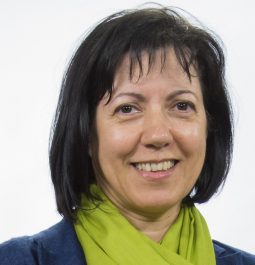Presentation
The Masters in Migrations, Inter-Ethnicities and Transnationalism was created in 2003 and since then has received students from all over the country, from Portuguese-speaking countries, from the European Union (through the Erasmus programme) and from other backgrounds. They can follow a more academic path, by elaborating a master’s dissertation, or a more practical one, by carrying out an internship in national or foreign institutions.
They may also conclude their training with the completion of a project, which may also follow a more academic path, leading to a doctorate, or a more applied one, leading to the application of the knowledge obtained in the realisation of a practical intervention.
Since the academic year 2013/2014, students interested in continuing their studies and embarking on a research career can deepen the knowledge obtained in the areas of the masters by enrolling in the PhD in Global Studies, a third-cycle programme offered jointly by the various Faculties of Nova University of Lisbon.
Objectives
The summarised general goals of the study cycle are as follows:
1) To master the conceptual vocabulary, methodologies, theories and problems within the realm of migration, inter-ethnicity and transnationalism;
2) To train and deepen the ability to critically analyse professional discourses and practices in relevant social and institutional contexts (work, housing, justice, school, politics, local management, etc.);
3) To acquire the necessary tools to carry out rigorous diagnosis, design consistent intervention proposals, formulate scientifically sound opinions, as well as to evaluate projects of intervention and to monitor situations.
Curricular structure
Duration: 2 years/4 semesters Total Credits: 120 ECTS (60 in curricular units + 60 in the non-taught component)
Modalities of non-taught component: Dissertation, Project Work or Practical Work Experience with Report
Students complete 50 credits in all the taught units offered. Students also complete 10 credits in a free-choice regime (in post-graduate level curricular units of NOVA FCSH, of NOVA or of other national or foreign higher education institutions, by means of a protocol). In the 3rd semester, students must attend a seminar to accompany the non-taught component (5 ECTS).
The Master’s degree corresponds to Level 7 of the NQF and EQF - National Qualifications Framework/European Qualifications Framework.
Coordination
Faculty staff
- Alina Esteves
- Ana Santos Pinto
- Bernardo Pinto Cruz
- Cláudia Urbano
- Diogo Ramada Curto
- Dulce Pimentel
- Helena Serra
- Joana Lopes Martins
- Jorge Malheiros
- José Leitão

